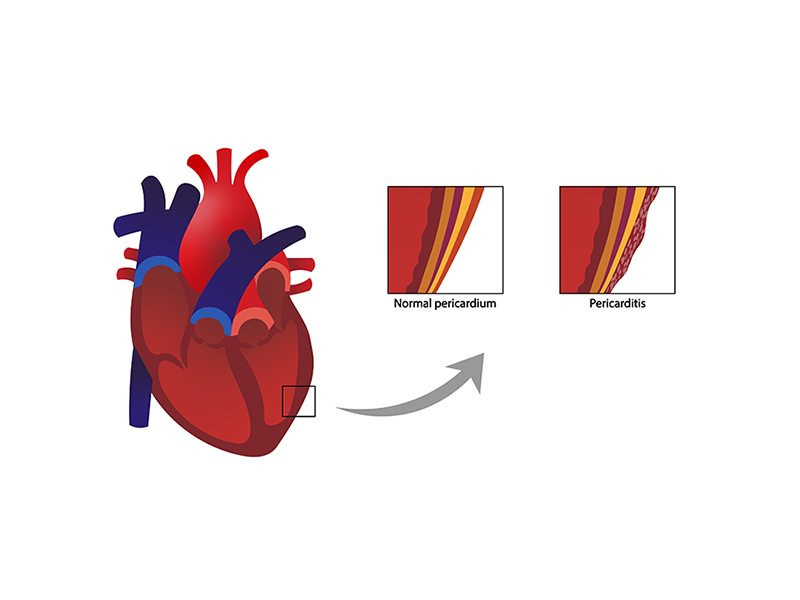03 Feb 2026
Rhinoplasty Revision Surgery in Mohali: Cost When Your First Nose Job Fails


Dr. Harinder K Bali
22 May 2025
Call +91 80788 80788 to request an appointment.
Pericarditis is an inflammation of the pericardium, the thin, sac-like membrane surrounding the heart. This condition is critical to understand as it can significantly impact heart health. Millions of people worldwide experience pericarditis each year, with varying causes and symptoms. While most cases may resolve with proper treatment, some instances can lead to complications, emphasizing the importance of awareness and timely intervention. In this blog, we will explore the causes, symptoms, and treatment options for pericarditis, and how cardiology specialists at Livasa Hospitals can help ensure appropriate care.
Understanding the causes of pericarditis is crucial to managing and preventing this condition. It can be categorized into several types, primarily based on the underlying cause. The most common causes include:
Identifying pericarditis early is critical for effective treatment. Symptoms can vary depending on the severity of the inflammation, but common indications include:
The diagnosis of pericarditis is multi-faceted and involves several methodologies:
If you are in Punjab and experiencing symptoms of pericarditis, seeking pericarditis diagnosis in Punjab at Livasa Hospitals can offer you an accurate assessment and prompt management of the condition.
The treatment of pericarditis is primarily based on the underlying cause and severity of the condition. The following treatments are commonly prescribed:
Patients seeking pericarditis treatment in Punjab can find comprehensive cardiac care at Livasa Hospitals, where specialized cardiology teams design tailored treatment plans based on individual needs.
Alongside medical treatments, certain lifestyle changes can help manage symptoms and improve overall heart health. Consider implementing the following strategies:
Awareness of potential complications is vital for patients suffering from pericarditis. These may include:
Regular follow-ups with a heart specialist are crucial to monitor for any developing complications and to adjust treatment strategies as required.
Given the intricacies of pericarditis, seeking care from heart specialists who understand this condition is important. In Punjab, Livasa Hospitals boasts a team of experienced cardiologists providing exceptional cardiac care.
The need for specialized intervention cannot be overstated. These healthcare professionals not only provide accurate diagnosis and tailored treatment plans but also offer guidance on long-term management strategies and lifestyle improvements to enhance heart health. If you are experiencing symptoms indicative of pericarditis, we encourage you to schedule a consultation with our team of specialists.
Pericarditis can be a distressing condition, but early diagnosis and appropriate treatment can significantly improve outcomes. Recognizing the symptoms and understanding the causes of pericarditis is essential for effective management. At Livasa Hospitals, we are committed to providing comprehensive cardiac care, ensuring that our patients receive timely and expert assistance tailored to their individual health needs.
If you or someone you know is experiencing symptoms related to pericarditis, don’t hesitate to reach out to us. Contact our heart specialists in Punjab at +91 80788 80788, or book an appointment for a thorough evaluation and dedicated care today.
Timely intervention is key. Book an appointment to see our heart specialists at Livasa Hospitals and ensure a healthy future for your heart.
Rhinoplasty Revision Surgery in Mohali: Cost When Your First Nose Job Fails
Plastic Surgery After Massive Weight Loss: Body Contouring Packages in Mohali
ENT + Cosmetic in Mohali: Septoplasty for Breathing with Cosmetic Rhinoplasty Offers
Livasa Healthcare Group Corporate Office,Phase-8, Industrial Area, Sector 73, Sahibzada Ajit Singh Nagar, Punjab 160071
| Mohali | +91-99888 23456 |
| Amritsar | +91-99887 49494 |
| Hoshiarpur | +91-99883 35353 |
| Nawanshahr | +91-75081 82337 |
| Khanna | +91-98888 05394 |